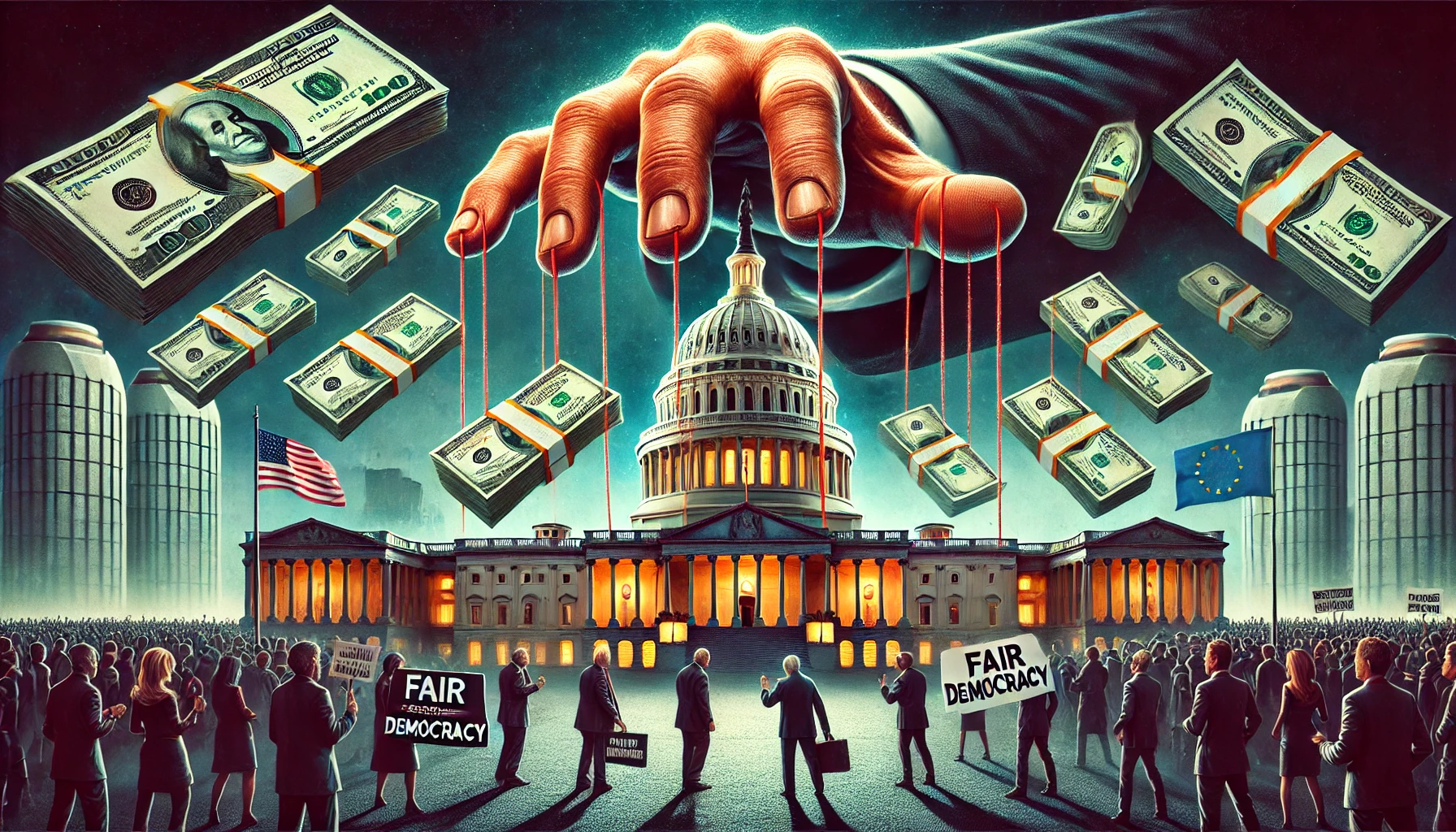S.O.S.
In modern politics, it no longer seems to be the best argument that determines elections, but rather the degree of influence wielded by the wealthiest corporations and individuals. The intertwining of big business and politics is particularly evident in the United States. Billionaires like Elon Musk, with his interests in X, Tesla and SpaceX, demonstrate how economic power can be used to drive political agendas. This leads to a situation in which corporations act as invincible players that undermine democratic processes.
The question we in Europe must ask ourselves is: do we want this too? The answer must be a clear ‘no’. Therefore, we must think about concrete solutions to curb excessive economic power and ensure that democratic decision-making is not held hostage by corporations with deep pockets.
The need for a separation between business and politics
Just as in the past it was recognised that the influence of the church on politics was problematic, and therefore a separation between church and state was implemented, we should now consider whether a separation between business and politics is necessary. The starting point should be that companies remain politically neutral and are not allowed to influence policy-making or election campaigns.
Proposals for regulation
To achieve this separation, the following measures could be considered:
Restriction of political financing by companies
Companies are not allowed to finance political parties or campaigns directly or indirectly. Only natural persons (citizens) should be allowed to exert influence through donations and voting rights. This prevents multinationals with large budgets from manipulating political decisions.
Regulation of media companies and digital platforms
(Multi)media services from outside the EU should be required to separate their European activities from their global operations. This means that user data must be stored within the EU and that management must be in the hands of employees from the EU. In this way, we prevent foreign interference and disinformation campaigns from economic superpowers.
Fair economic contribution of multinationals
Large companies operating in the EU should be required to invest a substantial part of their profits (for example 50%) in the European economy, infrastructure and innovation. This will prevent capital flight and ensure that European citizens also benefit from the successes of these companies.
Stricter lobbying rules
Companies and their representatives should not be allowed to directly influence legislation without full transparency. Lobbying activities should be publicly recorded and accessible to citizens.
By taking such measures, we can limit the power of companies in politics and protect democratic processes. The EU has the opportunity to lead the way in this regulation and create a fairer system in which political power remains in the hands of citizens, and not multinationals with billion-dollar budgets. Let us act now, before Europe makes the same mistakes as the United States.

